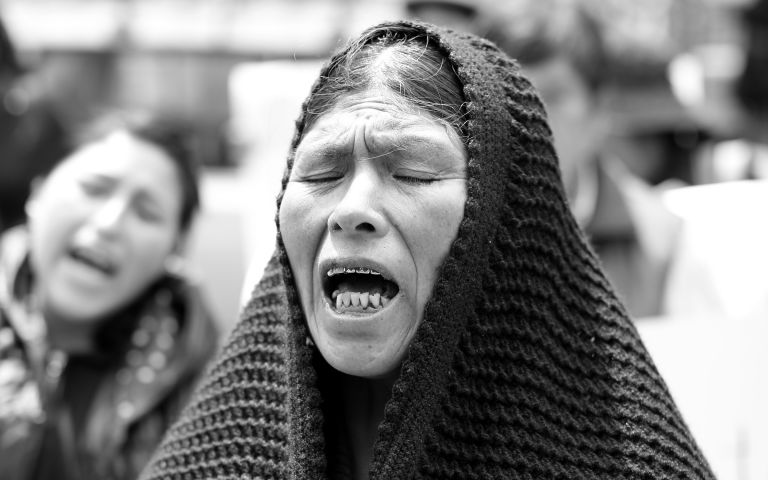From parts of the United States where child marriage remains legal to Russia, where women are banned from a host of jobs, almost every country has broken long-standing promises to eradicate discriminatory laws, legal experts said on Monday.

Rights group Equality Now urged all governments to review their laws as it launched a global study highlighting discriminatory legislation in areas such as marriage, employment, inheritance rights and sexual violence.
The report coincides with the 25th anniversary of the 1995 Beijing Platform for Women when 189 governments pledged to revoke all remaining sexist laws.
Lead author Antonia Kirkland said there were still “hundreds, if not thousands” of discriminatory laws worldwide.
“It happens everywhere in the world … almost every country (has them),” she told the Thomson Reuters Foundation.
More than 100 countries have laws barring women from specific jobs, 59 have no laws on workplace sexual harassment, and 18 have laws allowing husbands to forbid their wives from working, according to U.N. Women.
Kirkland said the World Bank only judged eight countries to have legal equality. These include Sweden, Iceland and Belgium.
The Equality Now review has a special focus on family law, describing it as “the last hurdle to gender equality”.
Family law, which covers marriage, divorce, property rights, inheritance, custody and guardianship, often defers to religion or custom, making reform particularly hard.
“Equality can never be trumped by discriminatory religious, traditional or customary beliefs,” Kirkland said.
“Governments committed (to reform) almost a quarter of a century ago so it’s past time for them to really take a hard look and not make any exceptions.”
Equality Now said women could not be equal in society if they were unequal in the family.
Governments in countries where religious or traditional laws have a strong influence should work closely with religious leaders to end discrimination, she added.
But Equality Now said there had been progress, with over half of laws highlighted in its past reviews having been repealed, amended or voided.
Democratic Republic of Congo has scrapped a law requiring wife obedience, Nicaragua has ditched a law designating the man as the head of the household, Singapore has criminalised marital rape and Saudi Arabia has lifted a ban on women driving.
So-called marry your rapist laws, which excuse a rapist if he weds his victim, have also been repealed in many countries, including Lebanon and Jordan.
“It’s not all bad news. But there’s still a long way to go,” Kirkland said.
She also highlighted concern that some countries had not only failed to scrap discriminatory laws, but proposed new ones.
Iran’s parliament passed a bill last year allowing fathers to marry their adopted daughters while Turkey tried to introduce a “marry your rapist” law in 2016. It never passed, but a similar proposal has been floated this year, Kirkland said.

